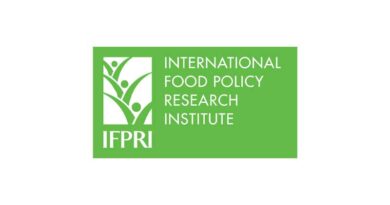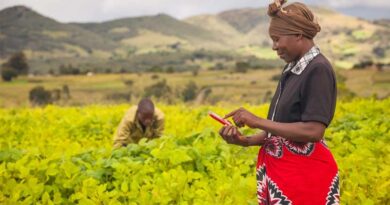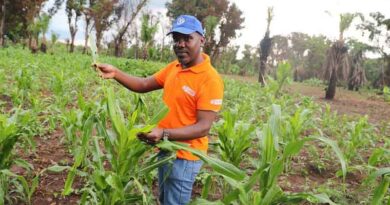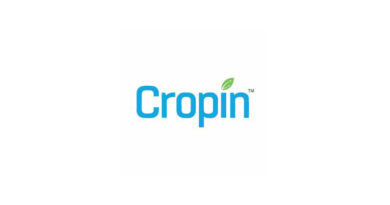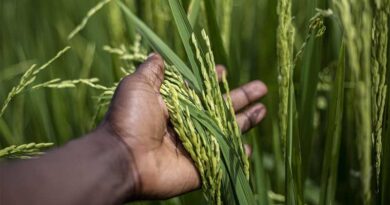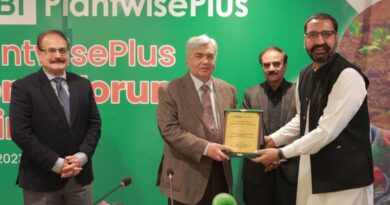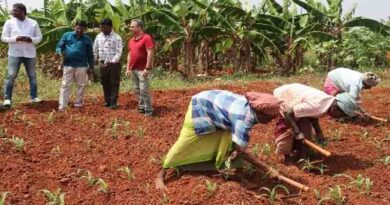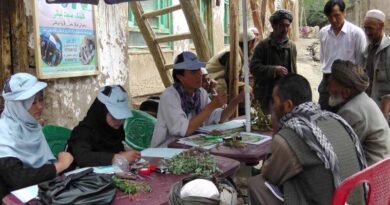CABI’s Climate Change Expert for Africa Highlights Need to Invest in Women for Climate Adaptation and Resilience
30 April 2024, Africa: Following on from International Women’s Day 2024 and the theme of ‘Inspire Inclusion,’ Dr Lydiah Gatere, CABI’s Climate Change Expert for Africa based at CABI’s regional centre for Africa in Nairobi, Kenya, highlights in this reflective blog the need to invest in women for climate adaptation and resilience.
I recently visited a project in Northern Uganda aimed at creating climate-smart jobs for women, refugees and host communities and trained farmers on integrated soil management.
I took the opportunity to highlight the importance of adding manure to improve soil fertility through keeping livestock – especially goats and sheep in kraals at night for manure collection – and the importance of investing in and engaging more women and girls in sustainable agriculture and food security initiatives.
Our changing climate does not affect everyone equally
As a woman focused on how agriculture can both impact and be impacted by the effects of climate change, I’m aware that our changing climate does not affect everyone equally.
Women frequently face higher risks and greater burdens from the impacts of climate change due to inequity and marginalization, ethnicity, low income, societal norms, and economic factors.
However, they also play a pivotal role in building community resilience, often taking the lead in responding to natural disasters, engaging in risk reduction, and aiding post-recovery efforts by addressing family needs and reinforcing community bonds.
Indigenous knowledge regarding agricultural practices
Traditionally, women’s roles in agriculture are influenced by their reproductive roles, therefore taking on responsibility for food production and security for their families. However, over the years, women – in their roles as providers of family food – have held and transmitted indigenous knowledge regarding agricultural practices.
In the eastern horn of Africa, they have learned to identify weather patterns; if it rains in February, it’s not yet time to plant, but they recognize its benefit for fodder growth, calling it ‘rain for fattening cows.
Additionally, women have traditionally played pivotal roles in driving and conserving plant genetic resources within their communities.
Enhancing food security by cultivating “hunger” crops
In Uganda, women comprise 88% of the agricultural labour force, a sector contributing to 76% of the country’s economy. Notably, women in Northern Uganda play a crucial role in enhancing food security by cultivating “hunger” crops, which they further process for added value, such as drying cassava and sweet potatoes.
They adapt to weather changes, such as erratic rainfall patterns, prolonged droughts, and increased temperatures, by planting fast maturing and high-yielding crops and drought resistance crops.
During my visit to the project in Northern Uganda, many people highlighted how women in the West Nile region engage in successful and resilient activities, and in capacity building as they are more involved in the planning process of community cooperatives.
The majority own small ruminants and belong to village-based income generating activities such as Village Savings and Loans Associations (VSLA).
Women are disproportionately impacted by drastic weather changes due to their limited access to resources, lack of decision-making power and social norms that restrict their mobility and participation in decision-making processes.
Empowering them in agriculture can have positive impact on climate adaptation and resilience.
Minimal time to tend to their individual farming duties
I met a women’s group in Lira, a city located in Northern Uganda, that engages in various entrepreneurial ventures related to food while also practicing small-scale farming.
The women said the entrepreneurial activities they engage in leave them with minimal time to tend to their individual farming duties. Recently they pooled resources to hire a tractor for tillage.
Despite making a payment, they did not receive the service as they were not prioritized. Purchasing a tractor is financially challenging for the group, and they lack the necessary skills to operate a tractor efficiently.
Including women in development initiatives and as users of agricultural mechanization, including tractors and conservation tillage equipment for soil health management, harvesting, and post-harvest processes, will open the industry to newcomers.
This approach can also generate increased awareness and possibilities for diversifying occupations, provided there is adequate support, building new perceptions and perspectives regarding the roles of women.
We need to recognize the value of women farmers knowledge and skills in value addition and postharvest handling equipment such as solar driers for surplus and perishable foods e.g. leafy greens, tubers etc.
Supporting initiatives that promote women’s leadership and decision-making roles in agriculture is crucial. Investing in women and girls yields wide-ranging benefits for communities.
Facilitating women’s participation in parliamentary activities also enhances the likelihood of ratifying international environmental treaties.
Support women inclusion in sustainable and climate smart agriculture
It is also important to advocate for policies that promote gender equality in climate planning, agriculture and ensure that women have equal access to land, resources, and markets, as well as engage with policy makers and stakeholders to push for changes that support women inclusion in sustainable and climate smart agriculture.
National government, private sector, farmer’s groups, NGOs, and other organizations can collaborate with other stakeholders to build partnerships and networks that support women’s meaningful involvement in the climate process and prominent roles for women in decision making and in climate action.
By working together, women can amplify impact and reach wider audiences. They can foster and create a supportive and inclusive environment by promoting gender equality, addressing biases and stereotypes, providing mentorship and networking opportunities.
Finally, let’s engage men and boys in conversations about gender equality and encourage them to be allies and advocates for women inclusion and empowerment.
(For Latest Agriculture News & Updates, follow Krishak Jagat on Google News)


